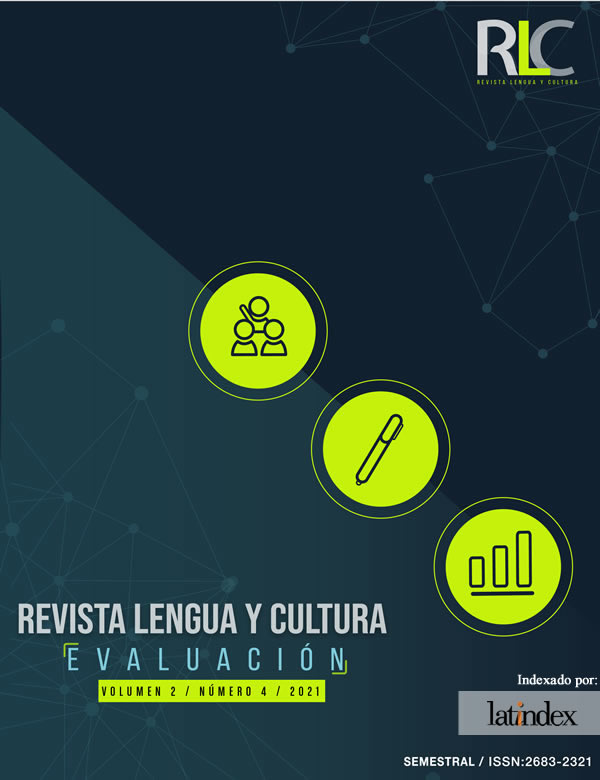The evaluation process of learning before and during Covid-19 lockdown. An exploratory study in Mexican public secondary schools
Abstract
In March 2020, México declared a health emergency due to the multiplication of confirmed cases of Covid-19. Because of the associated risks, all levels of government cancelled in-school classes for all educational institutions in the country, switching into a distance-based model for education. With this new work model, the assessment dynamics of learning have changed. Besides this, in 2017, the Secretariat of Public Education (the education office in México) implemented a transformative change in the assessment procedures. Particularly, with regard to the periods for evaluating the students’ learning during the scholar period; and the adaptations that would depend on the teachers’ reflection on the results in order to improve their teaching practice and the educational process. For both situations, it is important to know the teachers’ perceptions, so that if necessary, they can take any steps and modify it accordingly to the results. This investigation is exploratory and has the main objective of having a first view to the definition of techniques, ways, and criteria for assessing students learning in the English class in secondary schools in a city located in the north-west of Mexico. The analysis showed that participants agreed in relation to their definitions and criteria for assessment, and that throughout the pandemic contingency they have faced different changes in their perceptions about the evaluation process.
Downloads
References
Babbie, E. (2000). Fundamentos de la investigación social. International Thomson Editores.
Blasco, J. E. y Pérez, J. A. (2007). Metodologías de investigación en las ciencias de la actividad física y el deporte: ampliando horizontes. Editorial Club Universitario.
Bordón, T. (2015). La evaluación de segundas lenguas (L2). Balance y perspectivas. Revista Internacional de Lenguas Extranjeras, 4, 9–3. doi: 10.17345/rile20159-30
Cohen, A. (2001). Second Language Assessment. En M. Celce-Murcia (Ed.), Teaching English as a Second or Foreign Language (3rd ed.) (pp. 515-534). National Geographic Learning.
Córdoba Gómez, F. J. (2006). La evaluación de los estudiantes: una discusión abierta. Revista Iberoamericana De Educación, 39(7), 1-8. doi:10.35362/RIE3972537
Dwi, R. & Saputri, L. (2017). The authentic assessment to measure students' English productive skills based on 2013 Curriculum. Indonesian Journal of Applied Linguistics. 7(2), 263-273. doi: 10.17509/ijal.v7i2.8128.
Education First. (2019). Índice de Competencia en Inglés. Education First. Obtenido de: https://www.ef.com.es/epi/regions/latin-america/mexico/
Gento, S. (2004). Guía práctica para la investigación en educación. Sanz y Torres.
Gultom, E. (12 de mayo, 2016). Assessment and Evaluation in EFL Teaching and Learning. Proceedings of International Seminar on English. Language and Teaching. 4(1), 190–198.
Harmer, J. (2007). The Practice of English Language Teaching. Pearson Longman.
Harmer J. (2015). The Practice of English Language Teaching. Pearson Education Limited.
Hernández-Sampieri, R. y Mendoza C. (2018). Metodología de la investigación. Las rutas cuantitativa, cualitativa y mixta. Mc Graw Hill Education.
Organización de las Naciones Unidas para la Educación, la Ciencia y la Cultura. (2020). Respuesta del ámbito educativo a la COVID-19: Preparación para la reapertura de las escuelas: documento de trabajo. UNESCO. Obtenido de: https://unesdoc.unesco.org/ark:/48223/pf0000373401_spa?posInSet=97&queryId=N-a01e63fe-9128-4751-b60c-c0cd6fd50218&fbclid=IwAR18HMPIUZIdfoctdLYX_nTD7a3nnQaCDq91JzPr6maUzWD_7FTutWNKIU
López, R., Gutiérrez, M., Vázquez, S., Benet, M., Tereñes, C. y Legrá, S. (2012). La evaluación en la educación a distancia en la búsqueda de un aprendizaje desarrollador. MediSur, 10(2),102-108.
Obtenido de: https://www.redalyc.org/articulo.oa?id=1800/180023438016
López Torres, M. (1999). Evaluación educativa. Trillas.
Mexicanos Primero. (2015). Sorry. El aprendizaje del inglés en México. Mexicanos Primero. Recuperado de: https://www.cce.org.mx/wp-content/uploads/2014/07/Sorry-El-Aprendisaje-del-Ingles-en-Mexico.pdf
Pimienta, J. (2008). Evaluación de los aprendizajes. Un enfoque basado en competencias. Pearson Educación.
Rangel, R. (2020). La Era del Aprendizaje Activo. [formato de la clase, classroom, google docs]. Obtenido de: https://classroom.google.com/u/0/c/MTIzMDE4NDU2Njcy
Rojas, R. (2013). Guía para realizar investigaciones sociales. Plaza y Valdés Editores.
Secretaría de Educación Pública. (2017). Aprendizajes clave para la educación integral. SEP.
Secretaría de Educación Pública. (2020). Principales Cifras del Sistema Educativo Nacional 2019-2020. SEP. Recuperado de: https://www.planeacion.sep.gob.mx/Doc/estadistica_e_indicadores/principales_cifras/principales_cifras_2019_2020_bolsillo.pdf
Taylor, S. y Bogdan, R. (1987). Introducción a los métodos cualitativos de investigación. Paidós.
Tomlinson, B. (2005). Testing to learn: a personal view of language testing. ELT Journal, Oxford University Press, 59 (1), 49-46. doi: 10.1093/elt/cci005
Torres, M. E. y Torres, C. M. (2005). Formas de participación en la evaluación. Educere, 9(31), 487-496. Obtenido de: https://www.redalyc.org/articulo.oa?id=35603109
Ur, P. (1991). A course in language teaching. Practice and Theory. Cambridge University Press.
Copyright (c) 2021 Rosa Ascencion Espinoza Cid, Isis Berenice Caro Coronado

This work is licensed under a Creative Commons Attribution-NonCommercial-NoDerivatives 4.0 International License.













